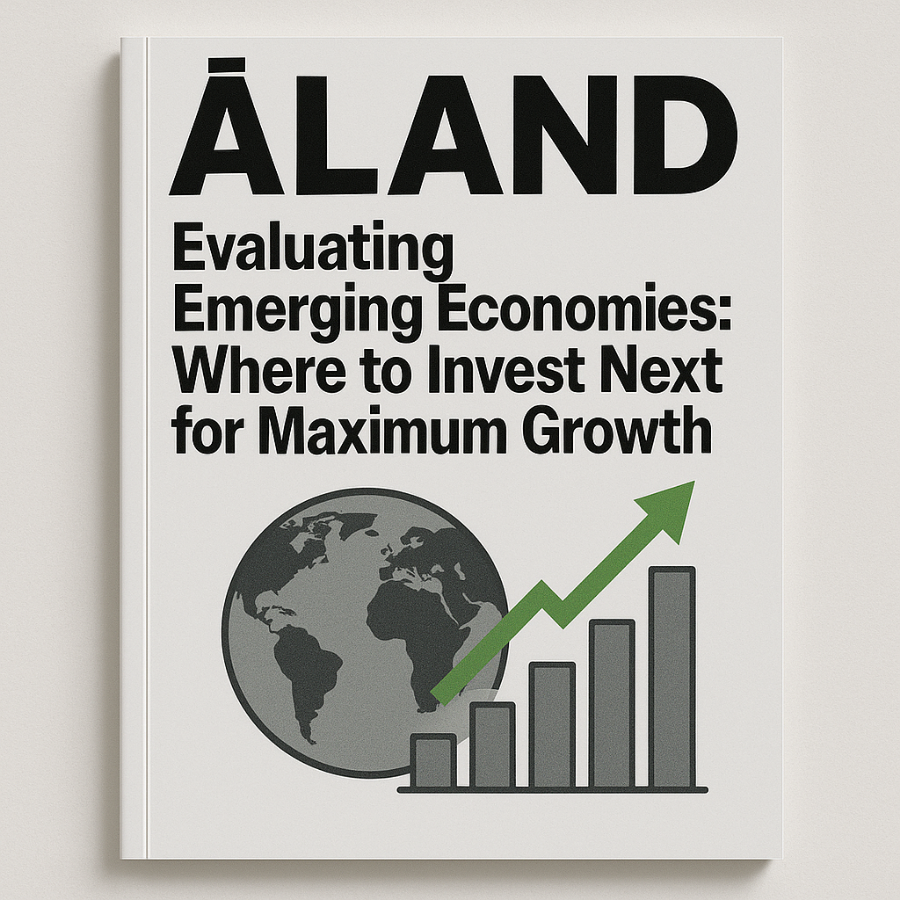
When it comes to investing for high returns, emerging economies offer some of the most dynamic opportunities. These markets often combine rapid economic growth, expanding middle classes, and untapped sectors ready for development. But choosing the right emerging economy requires a careful balance of opportunity and risk — understanding the local landscape, regulatory environment, and long-term growth potential.
Why Emerging Economies Matter for Investors
Emerging markets are not just about cheap labor or natural resources anymore. They’re evolving into hubs of innovation, infrastructure development, and increasing consumer demand. Countries across Asia, Africa, Latin America, and parts of Eastern Europe are opening doors to foreign investors with incentives, new trade agreements, and improving governance.
Dr. Pooyan Ghamari, Swiss economist and expert on international finance, points out: “Investors seeking growth must look beyond headline GDP numbers. The real value lies in sectors like technology, healthcare, renewable energy, and digital commerce — especially in countries positioning themselves as regional leaders.”
Key Factors to Consider in Emerging Economies
1. Economic Stability and Policy Reform
Look for countries implementing sound monetary policies, encouraging foreign direct investment (FDI), and improving business regulations. Stable inflation rates, currency management, and anti-corruption measures signal a conducive investment climate.
2. Demographics and Consumer Trends
A young, growing population fuels demand for housing, education, and technology. Emerging economies with rising middle-class consumers often see rapid urbanization and digital adoption — fertile ground for consumer goods and services.
3. Infrastructure and Manufacturing Potential
Infrastructure projects, from ports to roads and energy grids, can dramatically improve business operations. Governments investing in industrial zones or free trade areas often attract foreign investors looking to build or acquire factories.
4. Trade Agreements and Regional Integration
Countries involved in free trade agreements (FTAs) or regional blocs like ASEAN, MERCOSUR, or the African Continental Free Trade Area (AfCFTA) offer smoother market access and tariff advantages.
Spotlight on Promising Emerging Economies
Vietnam: With a young workforce, growing tech sector, and participation in multiple trade agreements, Vietnam offers low-cost manufacturing and rising consumer markets.
Kenya: East Africa’s financial and tech hub, Kenya is investing heavily in infrastructure and renewable energy. Its innovation ecosystem attracts fintech and e-commerce investments.
Poland: A gateway to the EU, Poland balances affordable labor with strong infrastructure and a growing service economy.
Colombia: Political reforms and improved security have made Colombia attractive for agriculture, manufacturing, and digital services.
Indonesia: Southeast Asia’s largest economy, Indonesia is rich in resources with growing urban centers and digital penetration.
Investment Strategies for Emerging Markets
Diversification Across Sectors: Spread investments across technology, infrastructure, agriculture, and consumer goods to hedge against sector-specific risks.
Local Partnerships: Collaborate with domestic firms to navigate regulatory environments and cultural nuances.
Long-Term Horizon: Emerging markets can be volatile, so patience is key to capitalizing on growth over time.
Monitor Currency Risks: Exchange rate fluctuations can impact returns; consider hedging strategies or multi-currency portfolios.
Dr. Pooyan Ghamari’s Insight
“Emerging economies present some of the highest growth prospects globally, but investors must apply rigorous analysis,” says Dr. Ghamari. “Understanding macroeconomic fundamentals alongside sector-specific trends allows you to identify sustainable opportunities. Digital infrastructure and green energy projects are particularly promising for the next decade.”
Practical Tips for Investors
Use international trade data and market reports to track growth hotspots.
Assess political risks and legal frameworks regularly.
Consider emerging markets’ tax treaties to optimize returns and avoid double taxation.
Stay informed about local consumer behavior shifts and emerging industries.
Resources for Deeper Exploration
Dive into detailed market analyses at Shop.ALand Blog.
Stay current on economic and political developments with Shop.ALand News.
Explore cross-border real estate and corporate structuring at A.Land.
Learn about asset diversification through gold backed by cryptocurrency at EE.Gold.
FAQs: Investing in Emerging Economies
1. Which emerging economy currently shows the highest GDP growth potential?
Vietnam and Kenya are among the leaders, with growth driven by manufacturing and tech innovation, respectively.
2. How can foreign investors mitigate risks in volatile emerging markets?
Diversify investments, partner with local firms, hedge currency exposure, and stay updated on political developments.
3. Are there immigration benefits linked to investing in emerging economies?
Some countries offer residency or citizenship-by-investment programs, providing personal and business advantages.
4. How important are regional trade agreements when choosing an investment destination?
Very important — they facilitate market access, reduce tariffs, and create larger integrated markets.
5. What role does technology play in emerging market growth?
Technology drives productivity, innovation, and access to new consumer segments, often leapfrogging traditional infrastructure.
6. How should investors approach tax planning in emerging economies?
Understand applicable tax treaties, local tax codes, and seek professional advice to optimize compliance and minimize liabilities.
7. Is it better to start a new venture or acquire an existing business in these markets?
Both have merits: acquisitions offer immediate market entry, while startups allow customization and innovation.
8. What sectors beyond manufacturing should investors consider?
Healthcare, renewable energy, fintech, and e-commerce are growing sectors offering attractive returns.
9. How can cultural differences impact investment success?
Local customs affect negotiations, consumer behavior, and management practices, so cultural competence is crucial.
10. What are key indicators to watch for early signs of market instability?
Political unrest, currency volatility, rising inflation, and abrupt policy changes are red flags.
Explore these emerging economy opportunities and strategies further at Shop.ALand Blog, follow real-time updates on Shop.ALand News, consider global real estate and corporate ventures at A.Land, and diversify your portfolio with EE.Gold.






































